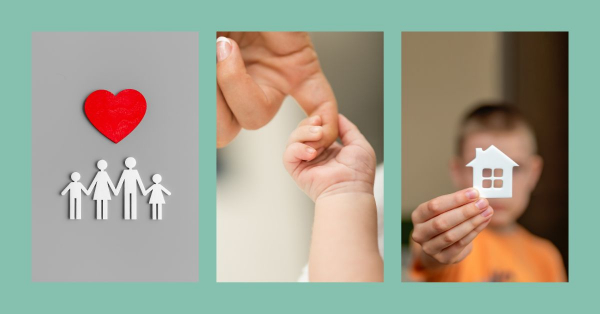Sexual Abuse
Current statistics show that as many as 75% of children in foster care have been sexually abused. Many times sexual abuse is not indicated in a child’s file; they have not trusted anyone enough to share this secret with them.
I attended a seminar where the presenter really made this point hit home. He asked each person in the class to write a sexual secret about themselves on a piece of paper, put it into an envelope, seal it, and hand it to another person in the room. Periodically through the course, he asked who was thinking about their envelope. Of course, nearly everyone in the room raised their hand. He did this several times, and each time nearly everyone raised their hand. At the end of the class, he picked a random envelope.
He then asked a few questions.
“What if revealing this secret meant that you would never see your family again?”
“What if revealing this secret meant one of your parents would go to jail?”
“What if revealing this secret meant that you would be removed from your home and placed with someone you didn’t know?”
Many children do not reveal their secret for these very reason. It may be years before they finally trust someone enough to tell what happened to them. Even then they may not be believed. If they are children who have moved through the system, they may have behavioral issues. If they are chronic liars, the adults may think this is just another lie.
Some authorities consider sexual abuse to be only by penetration. A child who has been violated any other way is not considered to have been abused. The child is no less damaged because she has not been penetrated, but the law may not declare it abuse, therefore it may not be listed in the file.
There are warning signs you can look for:
- Bed wetting that is not age-appropriate. Many children will wet their bed to prevent their abuser from coming into their bed.
- Toileting accidents that are not age-appropriate. Children use this to make themselves smell “unattractive” to potential abusers.
- Difficulty sleeping. Children will become hypervigilant in waiting up at night for an abuser to come into their room.
- Withholding stools/Constipation. For some children, this is an area of pain. They do not want to poop, because that part of their body equals pain. When they hold stools, it is painful when they do go, so it reinforces that this part of their body is the source of pain, and it becomes a vicious cycle.
- Word triggers. A child may became agitated at the word “nap.” His or her abuse probably happened at nap time, so if someone told him he needed to nap, he equated that with abuse. Other words like “rest time,” “quiet time,” or “snooze” may all acceptable, and not trigger the same anxiety as the word “nap.”
Do not expect your child to trust you and reveal the abuse to you immediately upon placement. It could take years…or they may never talk about it. Be sensitive to their needs. In a best case scenario, the abused child would be in his own room, with a closed door, and an alarm. Why? A sexually abused child who shares a room with another child, will resist sleep, waiting for the other child to abuse him or her. A closed door with an alarm can help to make the child feel more secure. Alarms can give a child a sense of security and trust. By alarming the door, you are giving the child the ability to know if someone is entering their room.
If you’re looking for professional support in helping your child cope with sexual abuse, this map is a handy resource for locating a child advocacy center near you:







